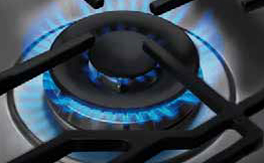A vision for clean cooking access for all
Nearly one in three people, the vast majority of them in the poorest regions of the world, still lack access to clean cooking facilities, with major ramifications for public health, local environments
Nearly one in three people, the vast majority of them in the poorest regions of the world, still lack access to clean cooking facilities, with major ramifications for public health, local environments
In an otherwise ‘electricity surplus’ Gujarat, the International Finance Corporation, a member of the World Bank Group, on Thursday announced a partnership with the Self-Employed Women’s Association (SEWA)
Rapid urban growth in developing countries has created an unprecedented demand for energy services. Cities face the enormous challenge of improving energy access to urban communities in order to improve
Globally, 1.4 billion people lack access to electricity and an estimated 2.7 billion rely on traditional biomass – wood, charcoal, animal waste and agricultural residues – for cooking and space heating.
The global focus on improved cookstoves (ICSs) and clean fuels has increased because of their potential for delivering triple dividends: household health, local environmental quality, and regional climate
It is conventional wisdom that it is possible to reduce exposure to indoor air pollution, improve health outcomes, and decrease greenhouse gas emissions in the rural areas of developing countries through
Programs to provide rural Pakistani households with so-called improved cookstoves have had a muted response due to a lack of awareness among target communities — particularly among the women who do the
Controlling smog and soot is the classic win-win situation, so it's great that the world is finally waking up to the idea, says Drew Shindell.

<p>This new World Bank report discusses India’s best improved biomass stove programs and suggests policies and practical ways to promote the use of cleaner burning, energy efficient, and affordable stoves. It includes case studies from six Indian states—Maharashtra, Haryana, Karnataka, Gujarat, Andhra Pradesh, and West Bengal—and other stove programs around the globe.</p>
A large body of evidence has confirmed that the indoor air pollution (IAP) from biomass fuel use is a major cause of premature deaths, and acute and chronic diseases. Over 78% of Sri Lankans use biomass
Nepal is looking to scale up its flagship household biogas programme, which has made forays into other developing countries in Asia and Africa. Initiated in 1992 with support from the Netherlands Development